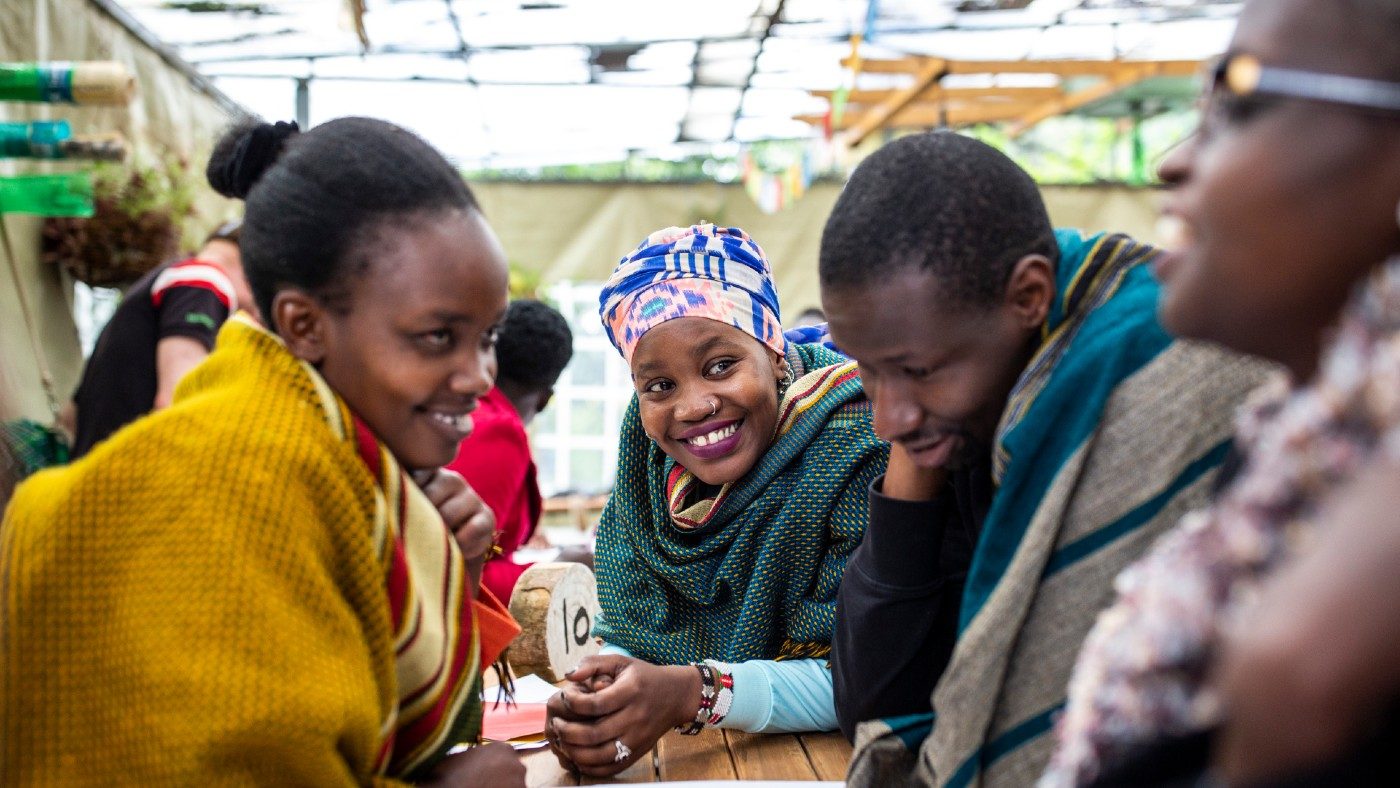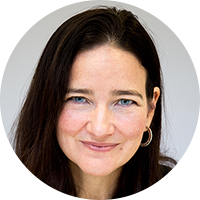Sightsavers and disability inclusion: our journey so far

At Sightsavers’ global programme meeting in 2015 we launched ‘empowerment and inclusion’, our first inclusion strategic framework. This document clarified what disability inclusion means for Sightsavers and set out how we planned to embed it throughout our organisation.
At that time, disability inclusion was often overlooked in development programming and given minimal funding. That’s why this strategy focused on areas where we could achieve sustainable change which would make a real a difference to people’s lives, even with limited financial input.
Five years on from the launch of that strategy, we are now in quite a different place as we plan our new approach.
There has been a real shift in terms of the attention given to disability inclusion:
- The Sustainable Development Goals (launched later in 2015) added the term ‘leave no one behind’ to development jargon.
- The UK’s Global Disability Summit in 2018 reinforced a focus on the rights of people with disabilities and the importance of the UN Convention on the Rights of Persons with Disabilities (UNCRPD.
- Subsequently, the UK’s Department for International Development launched a Disability Inclusion Strategy in 2018 and the UN launched its first Disability Inclusion Strategy in 2019.

Empowerment and inclusion
Our first inclusion strategic framework clarified what disability inclusion means for Sightsavers.
Read the reportHowever, for people with disabilities, it is not that easy to see the direct impact of all this attention, especially in the countries where Sightsavers works. This is because change takes time, and the exclusion of people with disabilities is often worsened by long-held negative stereotypes and explicit and implicit discrimination. Evidence about what works to achieve disability inclusion in the development sector also remains scarce.
And despite the high-level commitments made on the global stage, disability inclusion is still an area that is often under-resourced and marked by confusion and a lack of confidence about how best to approach it. It can often be deprioritised as a result of other pressing development challenges such as climate change and the response to the current global COVID-19 pandemic.
And yet, to borrow from Bob Dylan, ‘…times, they are a-changin’.
Equal World
Our Equal World campaign fights for the rights of people with disabilities.
More on the campaign
Scaling up our disability inclusion work
Within Sightsavers we have dramatically scaled up our work on disability inclusion, a positive result of an intensive period of advocacy which has generated interest in inclusive programming among donors. This has also fostered closer relationships with people with disabilities in the countries where we work and their global and national representative organisations, such as the International Disability Alliance (IDA).
We are working more closely with a range of new and existing partners and other stakeholders to strengthen the evidence base in a range of innovative learning projects. The most notable is Inclusive Futures, a consortium of 16 global partner organisations all advocating for disability inclusion. The new website is a hub of information for the global disability and development communities on learning and best practice, and showcases work happening across seven countries to promote equal opportunities for people with disabilities.
Developing our new strategy
Five years on from the launch of Sightsavers’ disability inclusion strategy, we are now reflecting back on our journey so far – a journey which has been documented and shared in our annual inclusion reports – and considering what we have learned and where we should focus next.
The process of developing our new strategy affords us the opportunity to revisit how we can best work with people with disabilities and their representative organisations; how we can factor in environmental risks more systematically in our planning; and how we can influence others to ensure that those people who are most marginalised, such as women with disabilities and people with intellectual impairments, are not overlooked. We will continue to develop interactive partnerships with organisations at local levels as well as those working regionally and globally to ensure that our programming is as effective as possible. We are consistently open to developing new relationships.
The development of our new strategy is currently underway and, from my perspective, it has not been that easy given the challenges posed by the shift to home working. On the other hand, the fact we aren’t currently on work trips taking us away from our desks, or having to grapple with meeting room availability, has enabled us to move forwards in our virtual ‘thinking space’. It has also led to more equal approaches to strategy-development, taking us away from previous models of getting a few global staff together physically and having others dial in from around the world.
It’s an exciting time for all of us, so watch this space…

Disability rights
We fight for disability rights, working across education, employment, health and political participation
More on disability rightsAuthor
 Tracy Vaughan-Gough is a global technical lead for social inclusion at Sightsavers UK.
Tracy Vaughan-Gough is a global technical lead for social inclusion at Sightsavers UK.
Read about Sightsavers’ commitment to inclusion
Social Inclusion Working GroupMore from the
Social Inclusion Working Group

Susie Rodgers: from the Paralympics to international development
Sightsavers' Kate Bennell reflects on Susie Rogers' lunchtime talk about her experience as a Paralympian swimmer before joining Sightsavers.

How we make our work inclusive
Ensuring your work can be understood by everyone should be an essential part of all your communications. Here’s a rundown of how to do it.

A history of inclusion
From the Old Testament to the Paralympics and beyond: we track the progress of disability rights and accessibility from ancient times to the present day.